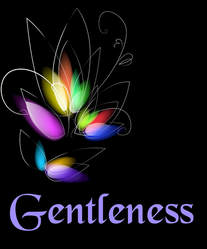
So what is to be done? Firstly we need to look to Jesus, who as the incarnation of God was not afraid to experience the full range of our human emotions of joy, anger, fear and grief. He lived passionately out of the very height and depth of human feeling. Now that can be pretty confronting for ourselves and sometimes others. As most of you know Jo and I have recently become grandparents. This week our daughter has been facing the challenges of an infant living into the fullness of their human emotions, expressing himself in anger and crying as well as beginning to reward her efforts with first smiles. It is quite a challenge for both of them. Yet infants as Jesus said, do indeed sometimes understand things better than adults...
As human bodies from infancy on, we dance and we wail; we experience the highs and lows of life. That is what it is to be human. I have been re-reading lately with both pain and pleasure the works of that great poet Gerard Manly Hopkins. Hopkins revels in beauty, whether he is describing creation for example when he writes,
‘The world is charged with the the grandeur of God; it
Will flame out like shining from shook foil’
Or declaring
‘Nothing is so beautiful as spring-
When weeds in wheels shoot long and lovely and lush’ and so on.
But with equal passion, Hopkins describes the darker places of his journeying, writing for instance
‘No worst, there is none. Pitched past pitch of grief
More pangs will, schooled at forepangs, wilder wring.
Comforter, where is your comforting?’
For Hopkins, as for Jesus, both joy and pain demand expression. And in both our joy and our pain, God is fully and vibrantly present; in both light and dark and embodied in both. And our faith in that vibrant presence is what saves us from becoming hard and bitter of heart. For in all our journeyings, both in the dancing and the wailing, we are beloved of God - and therefore we can dare to live life to the full.
So as beloved children, who experience to the full our pain and our joy, how are we to live? Jesus says, with humility and gentleness as the source of rest. Now in our contemporary society there seems to be a belief that if you want to get on in life you have to be hard, because if you are gentle others will walk all over you. Gentleness is equated falsely with timidity, passivity and weakness. Yet this is to misunderstand the true nature of gentleness.
The same Greek word used here for ‘gentle’, is in other places translated ‘meek’ - and you will recall that it is the meek, who according not just to Jesus in the Sermon on the Mount, but also to Psalm 37 shall inherit the earth. Moreover Moses was described in the Old Testament as ‘very meek, more so than any other human on the face of the earth’ ( Numbers 12:3) - in Matthew's scheme of things Jesus is the new Moses so that
goes together: yet when we think of Moses and the great work of leadership which he accomplished I do not think it is weakness or timidity that would first come to mind.
For gentleness is not a form of weakness. It is a form of strength. It takes a strong and self- confident person to be truly gentle - a person of the stature of St. Paul who in one of his earliest letters, to the Thessalonians declares, ‘we were gentle among you, like a nurse tenderly caring for her own children’. Gentleness is one of the most necessary qualities in life, without which neither joy nor pain can be tolerated. Our dancing and our wailing need to be handled with gentleness. Henri Nouwen wrote, ‘a gentle person treads lightly, listens carefully, looks tenderly and touches with reverence.’ Such people bring rest to others, the kind of deep rest Jesus speaks of when he promises rest for our souls.
In our often frenetic world we long for rest. The deep rest of being loved and listened to. The deep rest of letting go of our need to be right, to be in control, to have things our way. As Jesus says, ‘my yoke is easy and my burden light.’ If at any time, amid the joys and pains of life, which we must express, we find the burden heavy, we can be sure that it is because we are clinging too tightly to the need for control, and that like the Pharisees of Jesus day we have got ourselves caught up in a whole host of ‘shoulds’ and ‘oughts’ that we are never going to be able to fulfil. Instead let us seek to share with Christ only the load that He carries with us. For when we are yoked together with Christ, fear is overcome, striving ceases and all is gentleness and peace. So as we dance and wail our way through life, knowing ourselves loved in the midst of it all, may we let go of our burdens and find in Christ the ways of gentleness and rest. Amen
by Penny Jones, for Pentecost 5 Year A, 9 July 2017
 RSS Feed
RSS Feed